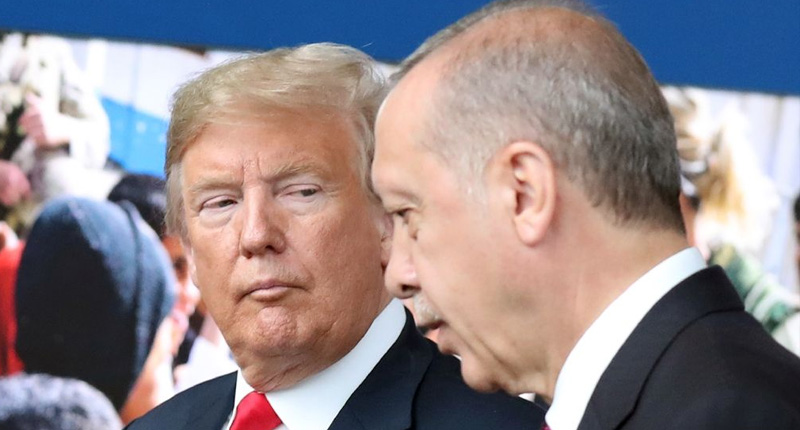Turkey and the Kurds: It’s More Complicated Than You Think
We are grateful for the Kurds’ help, and we should try to help them in return. But no one wants to risk war with Turkey.
On Monday, President Trump announced that a contingent of fewer than 100 U.S. troops in Syria was being moved away from Kurdish-held territory on the border of Turkey. The move effectively green-lighted military operations by Turkey against the Kurds, which have now commenced.
Some U.S. military officials went public with complaints about being “blindsided.” The policy cannot have been a surprise, though. The president has made no secret that he wants out of Syria, where we now have about 1,000 troops (down from over 2,000 last year). More broadly, he wants our forces out of the Middle East. He ran on that position. I’ve argued against his “endless wars” tropes, but his stance is popular. As for Syria specifically, many of the president’s advisers think we should stay, but he has not been persuaded.
The president’s announcement of the redeployment of the Syrian troops came on the heels of a phone conversation with Turkey’s President Recep Tayyip Erdogan. This, obviously, was a mistake, giving the appearance (and not for the first time) that Trump is taking cues from Ankara’s Islamist strongman. As has become rote, the inevitable criticism was followed by head-scratching tweets: The president vows to “totally destroy and obliterate the Economy of Turkey,” which “I’ve done before” (huh?), if Turkey takes any actions “that I, in my great and unmatched wisdom, consider to be off limits.” We can only sigh and say it will be interesting to see how the president backs up these haughty threats now that Erdogan has begun his invasion.
All that said, the president at least has a cogent position that is consistent with the Constitution and public opinion. He wants U.S. forces out of a conflict in which America’s interests have never been clear, and for which Congress has never approved military intervention. I find that sensible — no surprise, given that I have opposed intervention in Syria from the start (see, e.g., here, here, here, here, here, here, and here). The stridency of the counterarguments is matched only by their selectiveness in reciting relevant facts.
I thus respectfully dissent from our National Review editorial.
President Trump, it says, is “making a serious mistake” by moving our forces away from what is described as “Kurdish territory”; the resulting invasion by superior Turkish forces will “kill American allies” while “carving out a zone of dominance” that will serve further to “inflame and complicate” the region.
Where to begin? Perhaps with the basic fact that there is no Kurdish territory. There is Syrian territory on Turkey’s border that the Kurds are occupying — a situation that itself serves to “inflame and complicate” the region for reasons I shall come to. Ethnic Kurds do not have a state. They live in contiguous parts of Syria, Turkey, Iraq, and Iran. Most are integrated into these countries, but many are separatists.
Read the rest from Andrew C. McCarthy HERE.






Comments are closed.